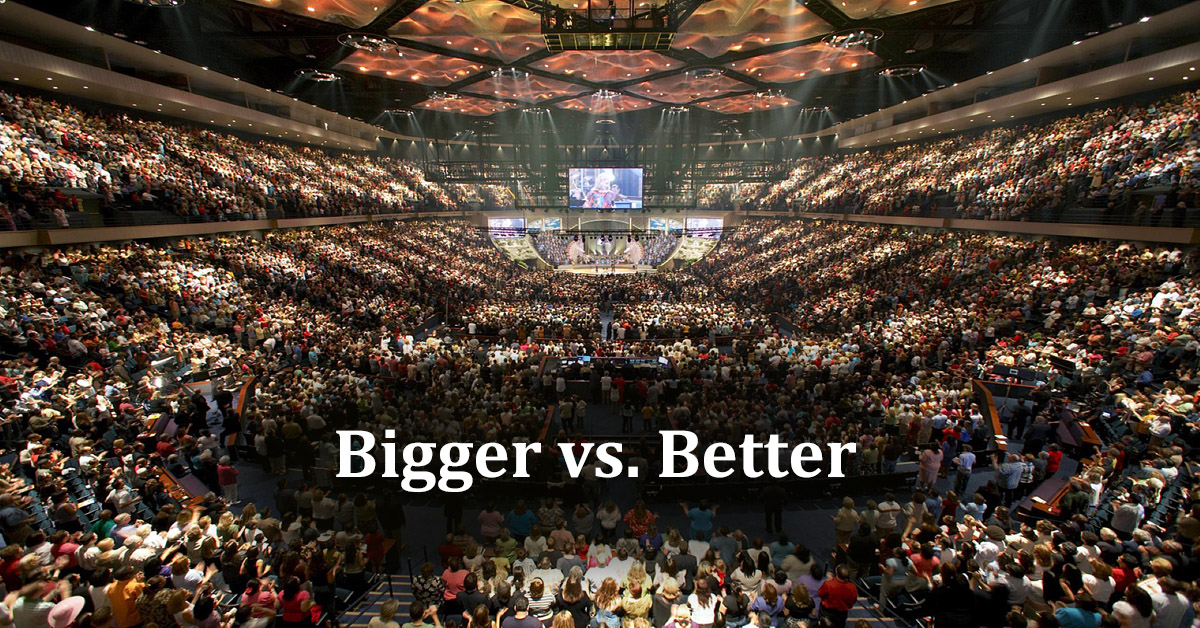Pastors want bigger Churches. Church members? Not so much.
Sure, a lot of people go to big Churches. That’s what makes them big, after all. And the majority of them are strong, healthy Churches doing great ministry. But if you ask the average member why they attend, “because it’s big” won’t even crack the top ten.
And non-attenders? Quite frankly, the default is to distrust any Church they deem as “too big.”
Is that too simplistic a way of viewing the Church? Of course. Every one of us can point to many exceptions to each of those rules. But those exceptions are… exceptional.
It’s only pastors who say “you know what the problem is with that Bigger Church? It’s not big enough.”
When people go to a Church, or when unchurched people think about going to Church (if they ever do), they’re not looking for a bigger experience, they’re looking for a better experience. That better experience can happen in a Church of any size or style. Small, big or mega. Traditional, contemporary or hipster. Denominational or nondenominational. The categories Church people use – even fight about – are not just a non-issue to the world around us, but the fact that they matter at all to us is increasingly seen as one of the reasons we’ve become irrelevant in most of their lives.
What people really need, and increasingly say they want from their Church experience isn’t any of the things we’ve added to it – whether long-held traditions or new fads. What people really want from the Church are the characteristics the New Testament has always told us the church is supposed to be about.
People want to attend and serve at a Church where they can experience being loved by the God who made them. They want to know why they exist. They want to be called to something greater than themselves. They want to connect with others who are asking the same questions and looking for the same answers. They want to participate in doing good for others, with others. They want to be in a community of people they trust so much that when they fail to live up to their ideals, someone will call them on it without getting legalistic or mean about it.
The most powerful evangelistic tool in the world is not a program, a special service, a booklet or a flashy presentation. It’s a group of people who live what they say they believe. Worshipping Jesus, loving each other and caring for their community. In other words, a healthy Church.

